Many of us rely on the inci, or skincare ingredients label to deem a skincare product worthy or unworthy. I will admit, I am a huge offender of taking this too far. In my defense, I became obsessed with skincare formulations after going to esthetics school. As time goes on, though, evidence has shown me, and skincare junkies alike, that it really is not so black and white. Let’s discuss what the ingredient label actually tells us, how to choose products online or on the shelf, and why it is important to seek out various professional opinions.
What a Skincare Ingredients Label DOES tell us:
- What is actually in the formulation – this is especially important if you have allergies, or are otherwise trying to avoid a specific ingredient in your products
- Active vs inactive ingredients – actives are listed first, whereas the inactive ingredients are listed later in the formula. For example, SPF is a drug in America and must be approved by the FDA first.
What it DOESN’T tell us:
- How the ingredients work together
- Exactly how much of each ingredient is in the formula – This is partly true: ingredients must be listed in descending order however, once you get to the 1% it can be listed in any order (and that can be a large portion of the formula)!
- How the formula will feel and absorb into the skin
- How the ingredients were sourced – hopefully the brand is transparent about their ethics and sustainability efforts that give you an idea on this topic
- If your skin will react well or not to the product – having experience with similar products helps you know what may or may not work for your skin, but this is not always true
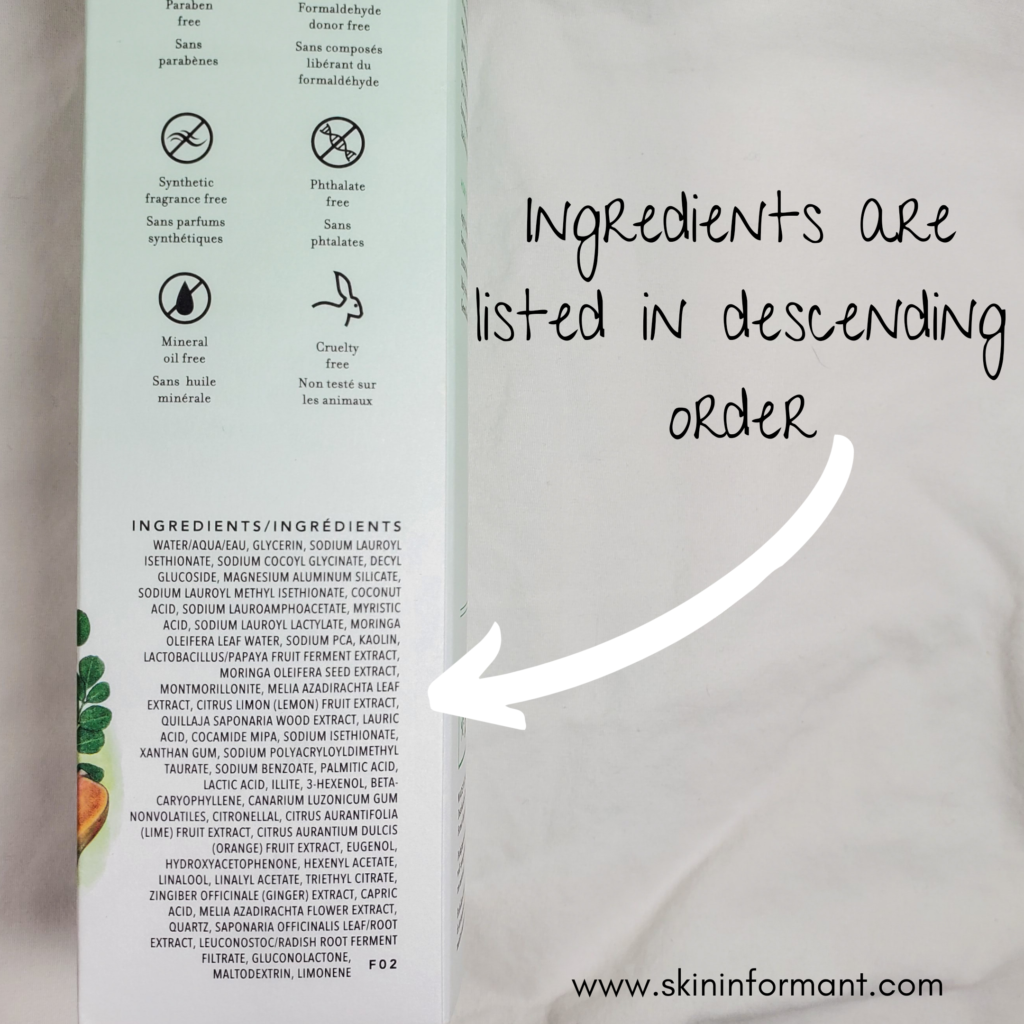
*IMPORTANT: ingredients do not necessarily need to be present at a high percentage to have effects on the skin. Antioxidants, Vitamin A and C, and Glycerin are all examples of ingredients that can positively impact the skin at low concentration (source). This can also go the other way, where certain ingredients such as fragrance can be included at very low percentages but still harm those who are sensitive to it. Overall, there can be some research done on specific ingredients and the positive or negative effects they have on the skin based on their concentration in formulas.
Understanding Different Perspectives
Many popular skincare creators have given their own opinion on the subject of ingredients lists and to interpret it. Personally, I believe an important thing to keep in mind is we all have different perspectives on this based on our careers and levels of involvement in the skincare industry.
For me as an esthetician, I have personal experience with applying skincare products to different faces and feeling skin texture. This gives me a more hands on aspect to my skincare experience. A chemist also has a tremendous amount of experience through research, from a lab and science perspective. A popular skincare content creator will also look at things differently as a professional reviewer! Or, someone who owns their own skincare brand will have knowledge on choosing ingredients for product formulation. It helps to take these different perspectives of people you trust into consideration when choosing your skincare products!
No matter your level of involvement with skincare, most of us can relate that skincare ingredients labels can be confusing. Even after researching it at home, it still won’t always point you in the right direction because of the reasons I listed above. So, what should we do?
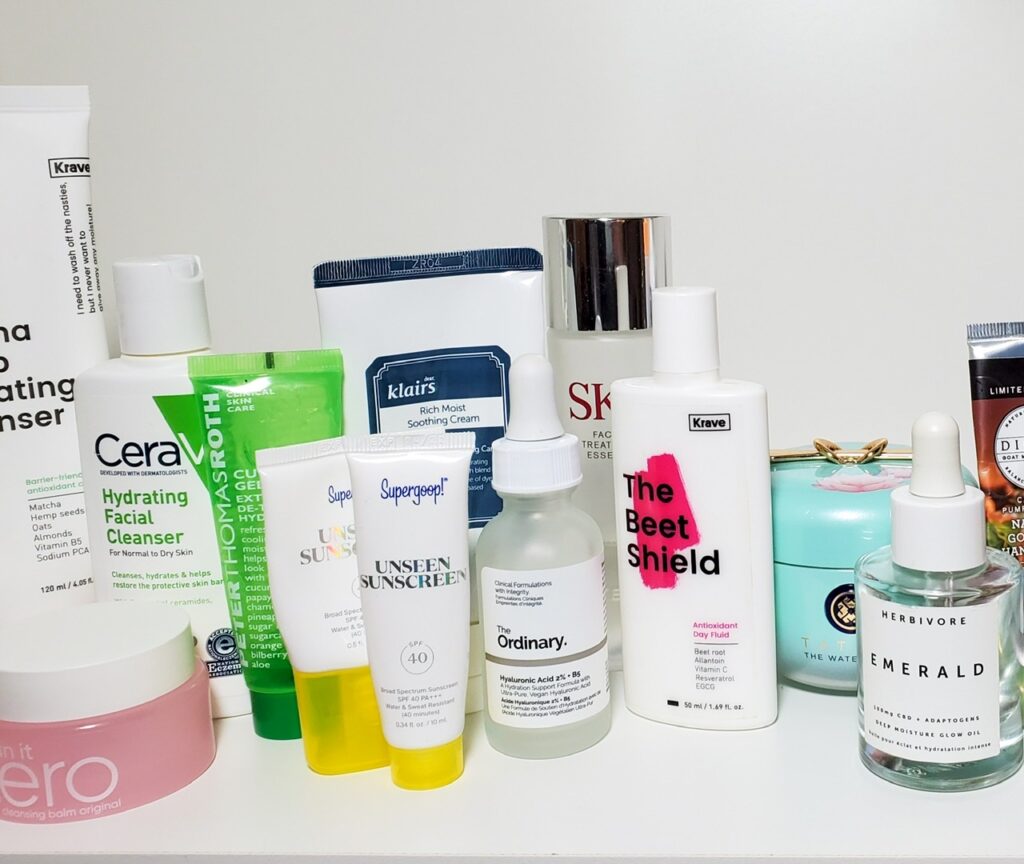
How to Choose Skincare
Obviously, you can’t just go buy everything with hopes that it works because we aren’t all made of money! But, here are several ways you can determine if a product could be right for you (in no order):
- Reputable brand that you have had good personal experience with
- Trusted skincare reviewers recommend the product
- You like the brand’s philosophy, ethics and sustainability efforts
- It includes a specific ingredient/effect the product can have on your skin
- Packaging and design
- Ingredients
You can take all of these or just one of these points into account when skincare shopping. And, there is still no harm done by trying a brand new product from a new brand. This is just to help you navigate the hugely competitive world of skincare.
Wrap-up
The skincare ingredients label gives us an important glimpse into the story that is a skincare product. You should definitely still be reading it over, but maybe not allow it to be the only reason you choose or skip on a product. I hope this guide is helpful the next time you are searching the shelves at your local beauty store or browsing online!
Before you go, check out my other skincare classes to get started on your skincare journey or read up on the top skincare question of 2020!
Various sources of information on this topic:
Lab Muffin – Chemist & Educator
Renee Rouleau – Celebrity Esthetician
Mixed Makeup (Susan Yara) – Co-founder of skincare brand Naturium, popular in the online skincare community space
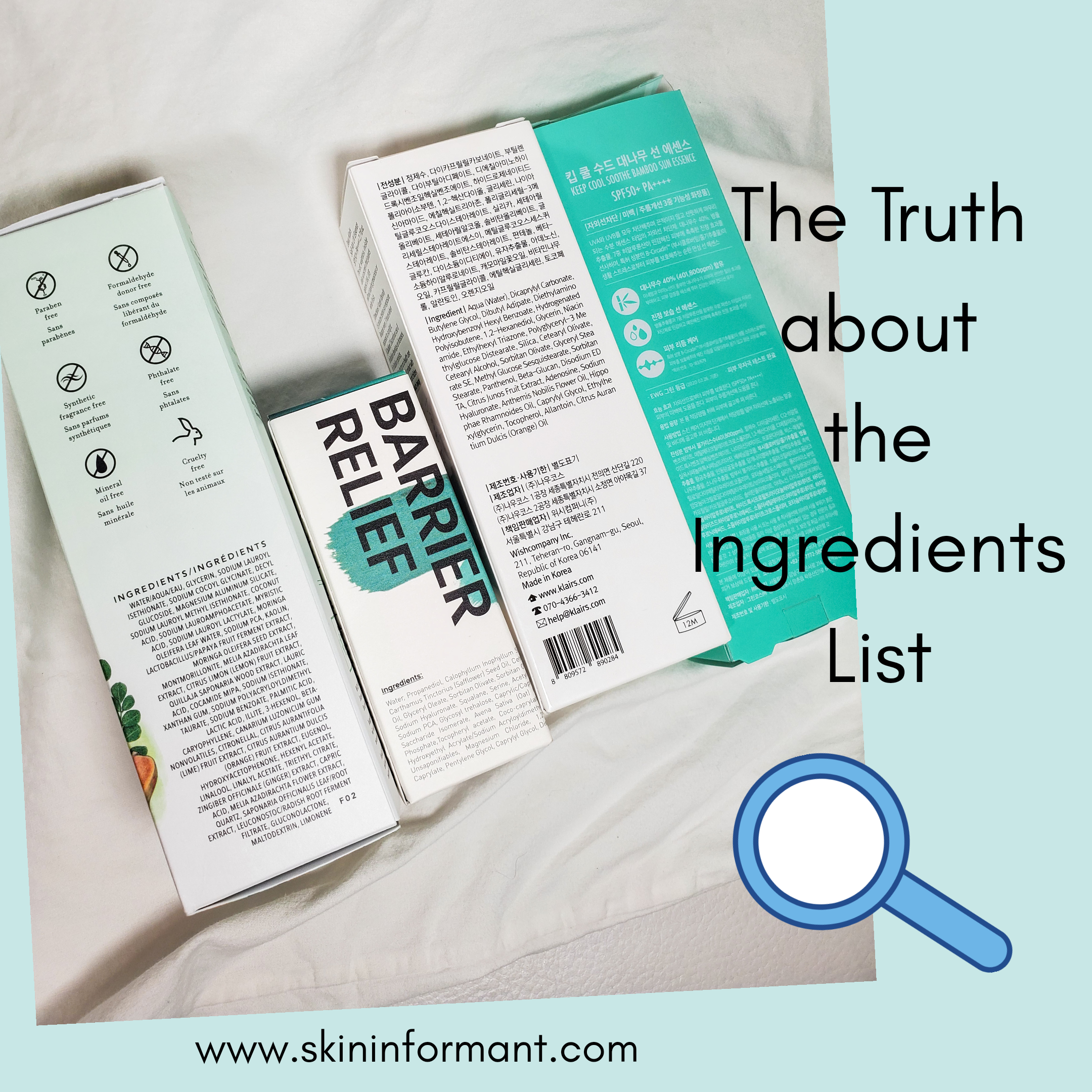
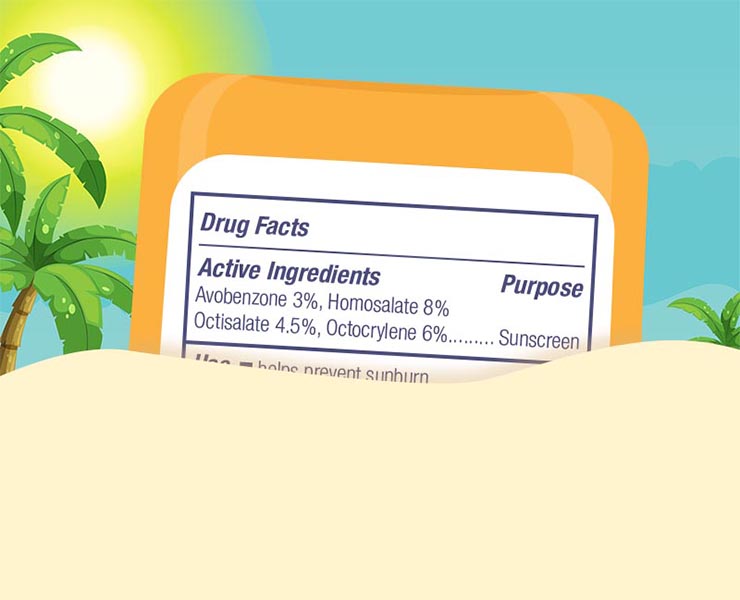
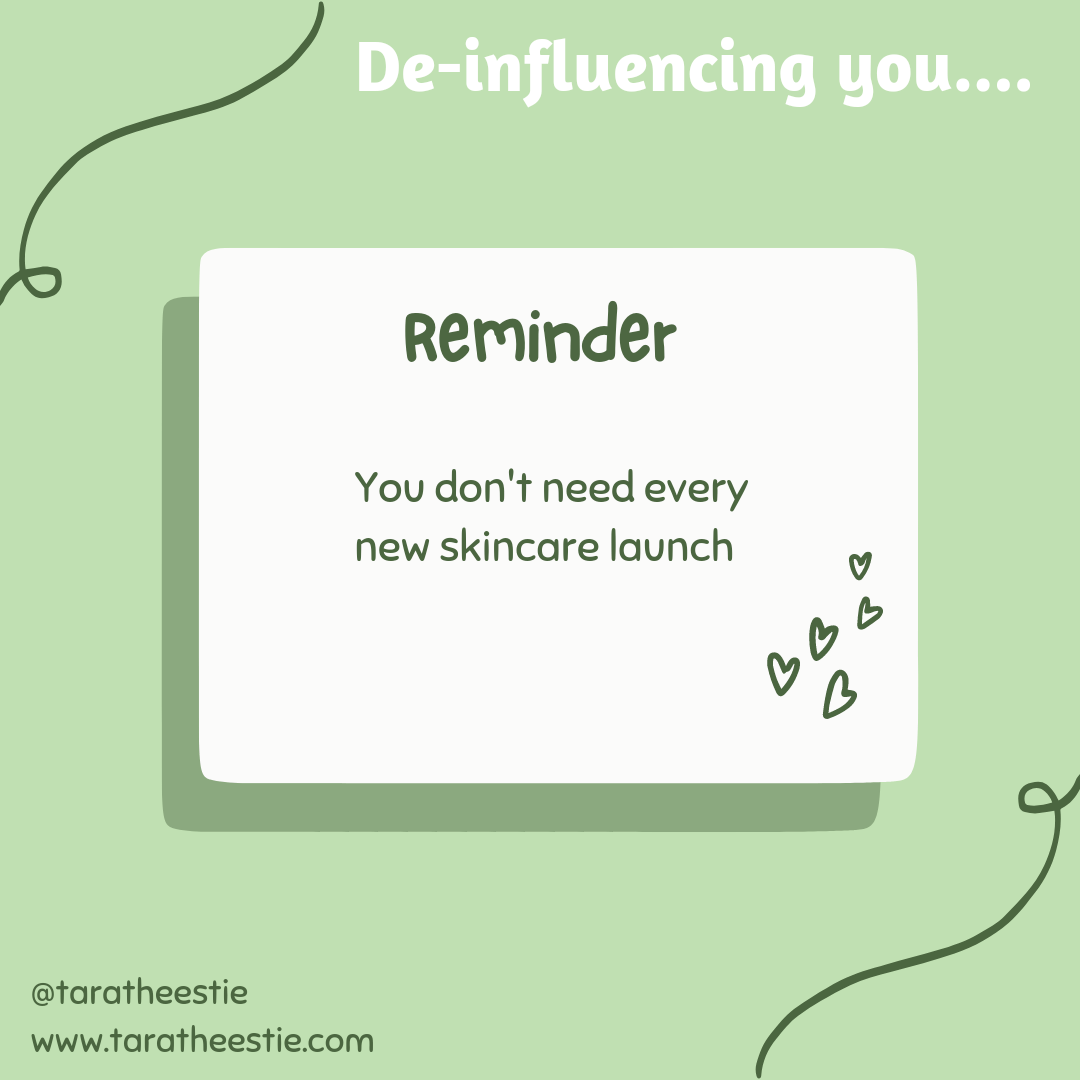
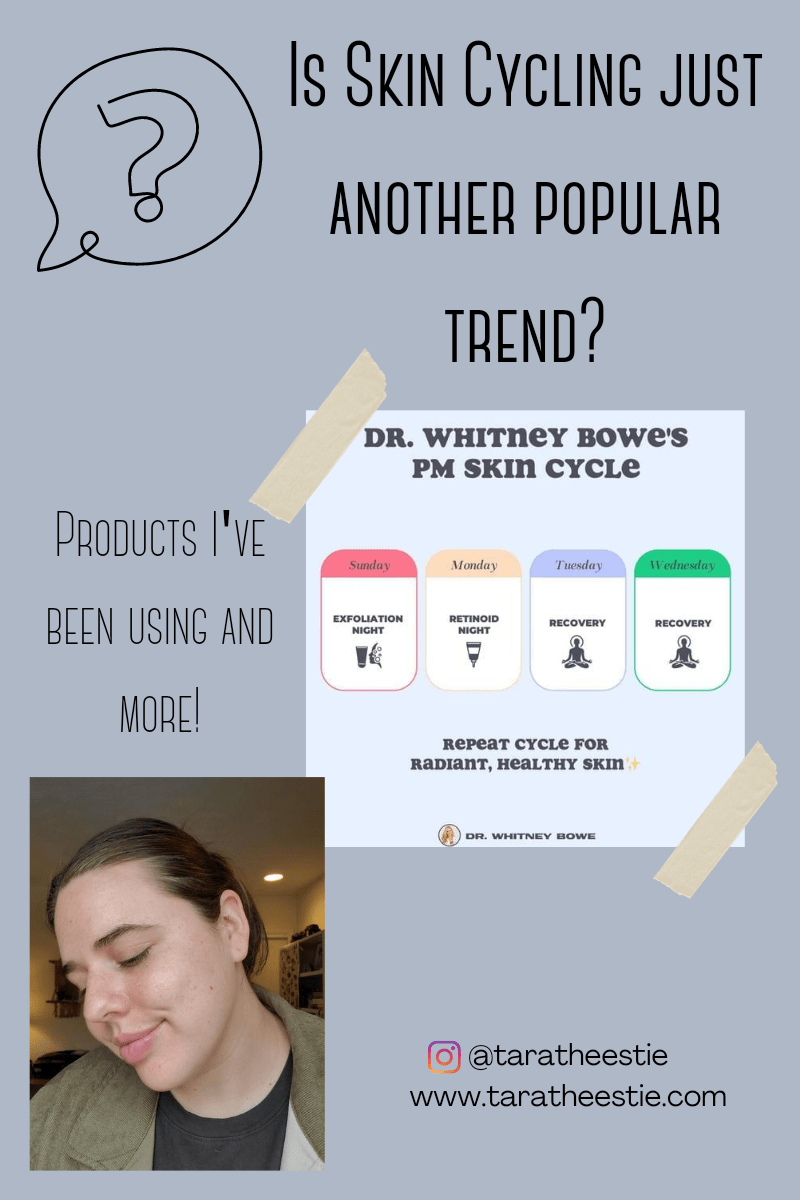
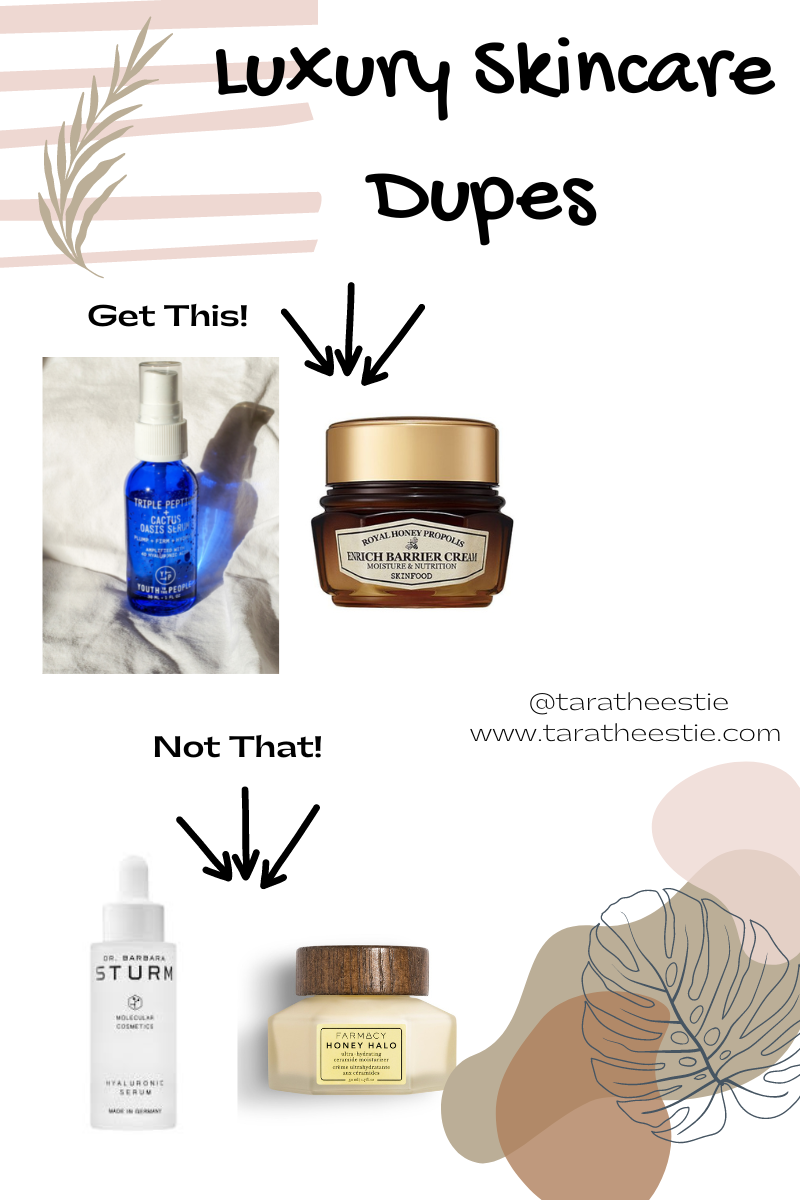

I find your blog and recommendations a huge source in what skincare I use. Thank you for your continuous help!
Of course! Thank you for always reading and supporting 🙂
I am also guilty at using the inci as the source of truth for a product. Good topic!
We can all take things a bit too far sometimes…LOL! Glad you found this helpful.
This is such an eye opening post! Definitely makes you realise that it’s whats on the inside that matters and it’s worth a try xx
Hannah | https://luxuryblush.co.uk/
Thanks so much for reading! It definitely makes me rethink my shopping habits a bit.